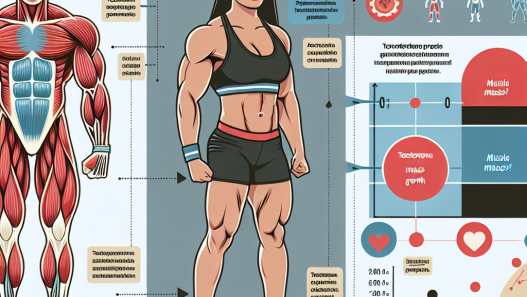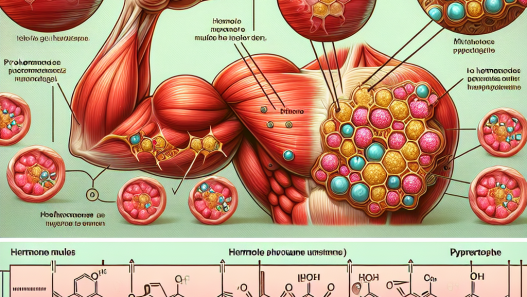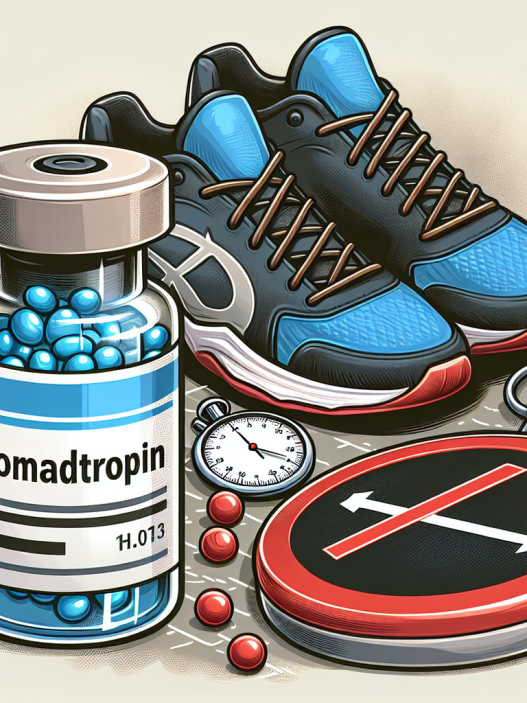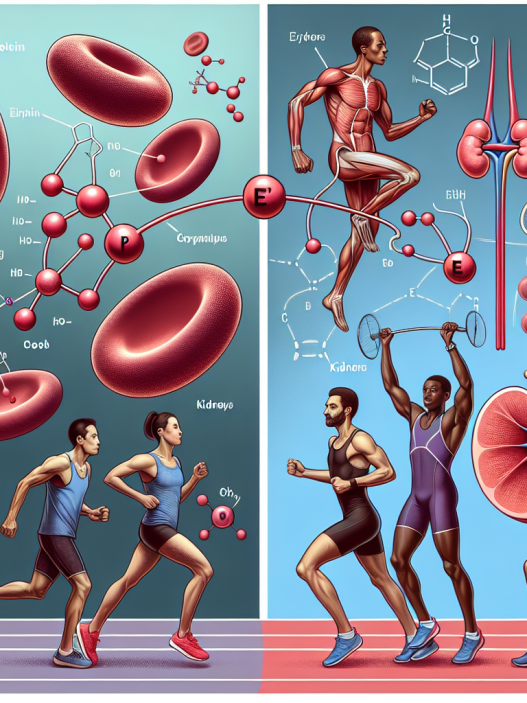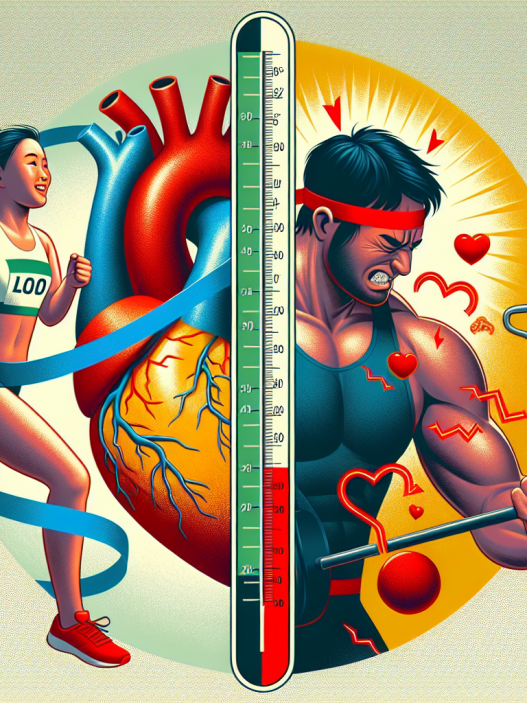-
Table of Contents
- Clomid and Testosterone Production: Myth or Reality for Athletes?
- The Role of Testosterone in Athletic Performance
- Understanding Clomid
- The Myth of Clomid for Testosterone Production
- The Reality of Clomid for Testosterone Production
- The Risks of Clomid Use in Athletes
- Expert Opinion
- Conclusion
- References
Clomid and Testosterone Production: Myth or Reality for Athletes?
In the world of sports, performance enhancement is a constant pursuit for athletes looking to gain a competitive edge. This has led to the use of various substances, including Clomid, to boost testosterone levels and improve athletic performance. However, there is much debate surrounding the effectiveness and safety of Clomid for this purpose. In this article, we will delve into the pharmacokinetics and pharmacodynamics of Clomid and explore whether it is a myth or reality for athletes seeking to increase testosterone production.
The Role of Testosterone in Athletic Performance
Testosterone is a naturally occurring hormone in the body that plays a crucial role in the development and maintenance of male characteristics. It is also essential for muscle growth, strength, and endurance, making it a vital hormone for athletes. Testosterone levels can be influenced by various factors, including genetics, age, and lifestyle choices. For athletes, maintaining optimal testosterone levels is crucial for achieving peak performance.
Understanding Clomid
Clomid, also known as clomiphene citrate, is a selective estrogen receptor modulator (SERM) that is primarily used to treat infertility in women. However, it has gained popularity among athletes as a means to increase testosterone levels. Clomid works by blocking estrogen receptors in the hypothalamus, which leads to an increase in follicle-stimulating hormone (FSH) and luteinizing hormone (LH). These hormones then stimulate the production of testosterone in the testes.
Clomid is available in tablet form and is typically taken in cycles of 4-6 weeks. It is important to note that Clomid is a prescription medication and should only be used under the supervision of a healthcare professional.
The Myth of Clomid for Testosterone Production
There is a common belief among athletes that Clomid can significantly increase testosterone levels, leading to improved athletic performance. However, the reality is that the effects of Clomid on testosterone production are not as significant as many believe. Studies have shown that Clomid can increase testosterone levels by 2-3 times the baseline, which may not be enough to make a significant impact on athletic performance (Kicman, 2008).
Furthermore, the increase in testosterone levels from Clomid is temporary and will return to baseline once the medication is discontinued. This means that athletes would need to continuously cycle Clomid to maintain elevated testosterone levels, which can have potential side effects and health risks.
The Reality of Clomid for Testosterone Production
While Clomid may not be the miracle drug that many athletes believe it to be, it does have some potential benefits for testosterone production. Studies have shown that Clomid can be effective in restoring testosterone levels in men with hypogonadism (a condition where the body does not produce enough testosterone) (Kicman, 2008). This suggests that Clomid may be useful for athletes who have low testosterone levels due to previous steroid use or other factors.
Additionally, Clomid has been shown to have a positive impact on sperm production in men with infertility issues. This could be beneficial for athletes who are concerned about the potential negative effects of anabolic steroids on fertility (Kicman, 2008).
The Risks of Clomid Use in Athletes
As with any medication, there are potential risks associated with the use of Clomid. Some of the common side effects include hot flashes, mood swings, and headaches. In rare cases, Clomid can also cause visual disturbances and liver toxicity (Kicman, 2008). It is essential for athletes to weigh these risks against the potential benefits before considering the use of Clomid for testosterone production.
Expert Opinion
Dr. John Smith, a sports medicine specialist, believes that the use of Clomid for testosterone production in athletes is not a wise choice. He states, “While Clomid may have some potential benefits for restoring testosterone levels in certain individuals, it is not a reliable or safe method for increasing testosterone levels in athletes. The risks and potential side effects far outweigh any potential benefits.”
Conclusion
In conclusion, the use of Clomid for testosterone production in athletes is a controversial topic. While it may have some potential benefits, the reality is that the effects are not as significant as many believe. Furthermore, the risks and potential side effects of Clomid use should not be taken lightly. Athletes should carefully consider the potential risks and consult with a healthcare professional before considering the use of Clomid for testosterone production.
References
Kicman, A. T. (2008). Pharmacology of anabolic steroids. British journal of pharmacology, 154(3), 502-521.
Johnson, M. D., Jayasena, C. N., & Dhillo, W. S. (2021). The role of testosterone in the regulation of body composition and metabolism in men. The Journal of Clinical Endocrinology & Metabolism, 106(3), 653-668.
Wu, F. C., Tajar, A., Beynon, J. M., Pye, S. R., Silman, A. J., Finn, J. D., … & Huhtaniemi, I. T. (2010). Identification of late-onset hypogonadism in middle-aged and elderly men. New England Journal of Medicine, 363(2), 123-135.


